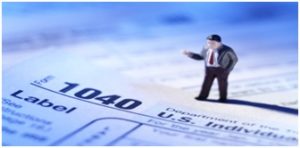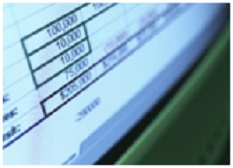 Tax season is upon us and with it come many questions about how to report your mystery shopping income when filing your Federal tax return. Here are a few key points to keep in mind when preparing your Federal tax return for 2012.
Tax season is upon us and with it come many questions about how to report your mystery shopping income when filing your Federal tax return. Here are a few key points to keep in mind when preparing your Federal tax return for 2012.
You cannot believe everything you read on various mystery shopping sites, blogs, and in newsletters. Some of this information is helpful, but with something as important as filing your Federal Income Tax, it is imperative that you verify the information. There is a lot of incorrect information, and quite a lot of conflicting information floating around. It can be daunting if you are tackling the task of reporting mystery shopping income for the first time, but even seasoned shoppers disagree on key issues. It can be confusing if you don’t know where to start.
One thing I was not aware of is that a CPA alone cannot represent you at the IRS unless they are also an Enrolled Agent. Enrolled Agents must know all parts of tax law. The Enrolled Agent test is an extremely difficult 3-part exam. Once they pass, they must take 72 hours of classes every 3 years to stay current on tax law. I’ve come across many mystery shoppers who have been misinformed by their tax preparers or CPAs about mileage deductions and other key elements of their tax return. Based on my research, I have concluded you shouldn’t consult with just any CPA for tax advice. Ask to speak to an Enrolled Agent. If they don’t know what you are talking about, run!
 You are not an employee of the Mystery Shopping companies you work for. You are considered an independent contractor, and are considered to be self-employed. You should report your mystery shopping income on Schedule C or Schedule C-EZ (Form 1040) if your net earnings were $400 or more. Generally, you must pay self-employment tax (SE tax). Self-Employment tax is calculated on the amount of your profit and it is what self-employed persons pay into Social Security and Medicare — amounts that are deducted from an employee’s paycheck. Use Schedule C or C-EZ to figure net earnings from self-employment and to report your SE tax. Enter the SE tax on Form 1040 and attach Schedule SE even if you do not otherwise have to file a federal income tax return!
You are not an employee of the Mystery Shopping companies you work for. You are considered an independent contractor, and are considered to be self-employed. You should report your mystery shopping income on Schedule C or Schedule C-EZ (Form 1040) if your net earnings were $400 or more. Generally, you must pay self-employment tax (SE tax). Self-Employment tax is calculated on the amount of your profit and it is what self-employed persons pay into Social Security and Medicare — amounts that are deducted from an employee’s paycheck. Use Schedule C or C-EZ to figure net earnings from self-employment and to report your SE tax. Enter the SE tax on Form 1040 and attach Schedule SE even if you do not otherwise have to file a federal income tax return!
Tax rates . The social security part of the self-employment tax remains at 10.4%. The Medicare part of the tax remains at 2.9%. As a result, the self-employment tax is 13.3%.
A common misconception is that you do not have to report income from a company if you receive less than $600 from them during the tax year. Even if you do not receive more than $600 from one company and do not receive a 1099 from them you must report that income. There are severe penalties for not reporting all mystery shopping income.
As an independent contractor, you can report certain expenses you incur. One of the areas of controversy I found was that even many CPAs are advising clients that they may no longer report their mileage expenses to and from their job sites because this would be considered driving to your work location and home, which is not deductible. However, as the IRS defines a work location, the places you visit as a mystery shopper do not count as work locations because you do not do most of your work from any one location. Therefore mileage expense to and from your mystery shop contracts is deductible. Section 162(a) allows a deduction for “the ordinary and necessary expenses a taxpayer pays or incurs during the taxable year in carrying on any trade or business, including the cost of operating an automobile to the extent that it is used in a trade or business.” There are two ways to figure this deduction; one is mileage and one is depreciation. If you use the standard mileage rate for a year, you cannot deduct your actual car expenses for that year (depreciation, lease payments, maintenance and repairs, gasoline, oil, insurance, or vehicle registration fees). None of your personal mileage or expenses related to personal use of your vehicle can be deducted.
 What’s New when filing your 2012 taxes?
What’s New when filing your 2012 taxes?
The following are some of the changes for tax year 2012 (January 1 – December 31, 2012). For more information on these and other changes, go to www.irs.gov.
Maximum net earnings. The maximum net self-employment earnings subject to the social security part of the self-employment tax increases to $110,100 for 2012. There is no maximum limit on earnings subject to Medicare. It is unlikely that you would ever meet this threshold as a Mystery Shopper.
Standard mileage rate. For 2012, the standard mileage rate for the cost of operating your car, van, pickup, or panel truck for each mile of business use is 55.5 cents per mile.
While you could, in theory, claim a home office deduction, it is a risky business so keep these things in mind if you do opt to take this deduction:
- The IRS requires that the space must be separated from other living areas of the house and be used for NOTHING except your business.
- The IRS can reasonably expect you to prove you did use the space exclusively for your business.
- When taking depreciation on business equipment, for instance, you should not even use your business computer for any personal emails.
- If you own your own home, you would need to claim depreciation on the space, furniture etc., and if/when you subsequently sell your home you will need to “recapture” the depreciation claimed as a lowering of your cost basis in your home.
You alone must decide if you are up to meeting these challenges in order to claim the home office deduction for your mystery shopping income.
The most helpful tip I can offer is to keep accurate records throughout the year.
- Keep a mileage log if you choose to deduct mileage and update it after every mystery shop.
- If you choose to itemize other expenses, keep your receipts and any information needed to verify their necessity in conducting your business.
This barely scratches the surface, but hopefully it will give you a place to start. Don’t let the ins and outs of tax preparation keep you from the other benefits mystery shopping income affords you — such as the ability to set your own hours and work as much or as little as you like. If you keep good records throughout the year, you will soon be sailing through the task of reporting your mystery shopping income with ease!
For more information about the general rules for deducting business expenses, see Chapter 1 in IRS Publication 535, Business Expense.
The information provided in this article is designed to be used for reference purposes only. It should not be used as, in place of, or in conjunction with professional legal, financial and/or tax advice relating to self-employment. For additional information relating to taxes, consult with a local tax professional (an Enrolled Agent) or go to www. irs.gov.
Sandra S
